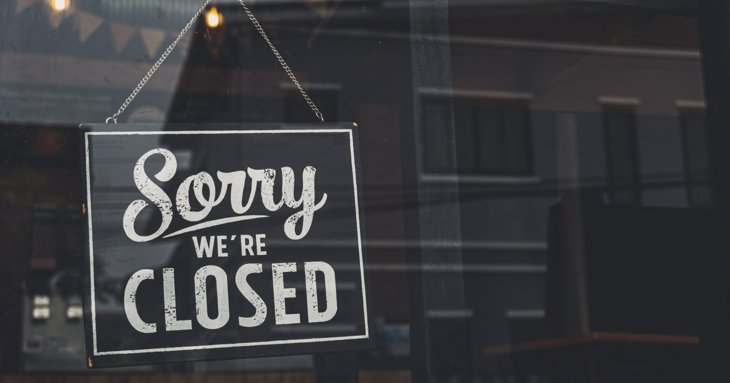Two thirds of small businesses in the south west are at risk of closure due to skyrocketing fuel and energy prices, according to a new survey.
The SME Insights Report from small business insurance provider, Simply Business, found that 65 per cent of SME owners in the south west say rising fuel and energy costs are putting their businesses at risk, while 36 per cent said hikes in tax and national insurance were of their greatest concern, along with marketing and finding customers, difficulties finding reliable, cost-effective supplies and increased competition in the marketplace.
The report also found that a fifth of south west SMEs were struggling with a lack of funds or access to credit, further adding to the risk of closure.
The survey of over 1,000 small business owners in the UK reveals that more than half intend to raise prices by six to 10 per cent to try and combat increasing expenditure; while 78 per cent are calling on the government to reduce the energy price cap and 29 per cent are arguing to extend the VAT cut.
While millions of businesses across the country are facing higher energy bills and lower purchase power from overstretched consumers, SMEs in the food and drink, hospitality and retail sectors are most at risk, with the effects of the Covid-19 pandemic still being felt by many.
Over the last two years, 87 per cent of small business owners in the UK lost an average of £20,981 - with the total cost of the Covid-19 pandemic sitting at £109.6 billion and one in six businesses believing they will never be able to financially recover.
Providing an analysis of the report, Professor of Economics and Public Policy at King's College London, Jonathan Portes, said: 'Apart from raising prices, the main response to these adverse pressures from businesses is likely to be to simply hunker down, reduce costs where possible, and get on with it: that is, to pause expansion plans and, for those with employees, to cut back on hiring, hoping that conditions will improve over the coming year.
'The crucial factor here is likely to be consumer confidence and consumer demand. This has clearly taken a severe hit in recent months, but may recover if inflation reduces and real incomes return to growth.
'Fuel and energy prices are by far the largest concern, and here the key drivers are global. However, UK conditions have been aggravated by both Brexit and the recent fall in the pound, which further pushes up energy prices, as well as by the operation of the energy market and the price cap.
'Nor does the disconnect between the Prime Minister’s call for a “high wage, high productivity” economy and the insistence that workers have to accept large cuts in real wages help to improve consumer and business confidence. While UK businesses remain resilient in the face of further economic turmoil, they need and deserve a more coherent longer-term strategy for the UK economy.'
However, there is hope, with many business owners feeling confident that they can survive this period, even as the economy is set to worsen over the next six months, providing a stark contrast to sentiments from this time last year.
UK CEO of Simply Business, Alan Thomas, added: 'Our SME Insights Report is a clear indication that small business owners want and need government support, with three in five calling for a review or reduction of the energy price cap.
'Accounting for over 99 per cent of all UK businesses and contributing trillions of pounds in turnover every year, small businesses sit at the heart of our communities and are vital to our economy. And while it’s encouraging that the majority remain optimistic about their businesses chances, it’s clear that owners need support to weather the pressure of rising costs.'




.png?width=690&height=361&rmode=pad&bgcolor=ffffff&quality=85)





.png?width=432&height=227&rmode=pad&bgcolor=ffffff&quality=85)




